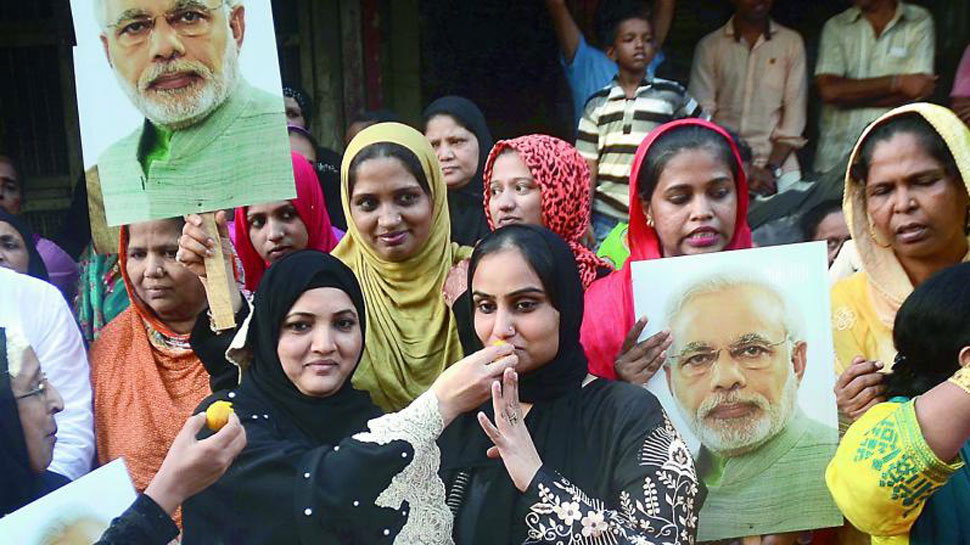Taking a leaf out of its stance on Triple Talaq, the Modi government is all set to oppose the archaic practices of Nikah Halala and polygamy. Despite the fact that Triple Talaq and Nikah Halala fall under the same legal ambit, the reason for the delay in opposition to the latter is due to the then Chief Justice of India JS Khehar, who while hearing the Triple Talaq case in May 2016, had categorically stated on the first day that the court would only hear arguments on the issue at hand and not on Nikah Halala and polygamy.
Nikah Halala is a largely outdated practice, wherein if a Muslim man divorces his wife for the third time, he cannot remarry her unless she weds another man who thereby divorces her. Only after she has been divorced by the new husband is she illegible to marry her former husband after their third divorce. Without getting into the technicalities of the rule, it is quite clear that it has next to zero practicality and resounds of open and blatant misogyny and disregard for women’s rights and opinions.
The law is under Section 2 of the Muslim Personal Law (Shariat) Application Act, and the petitioner, BJP leader Aswini Updahyay has sought that the subject provision be declared unconstitutional. Upadhyaya has prayed in her petition that the law is violative of Articles 14, 15 and 21 of the Constitution. The government would submit its reply after the Supreme Court re-opens and is likely to maintain that the “issue of validity of triple talaq, Nikah Halala and polygamy needs to be considered in the light of principles of gender justice and the overriding principle of non-discrimination, dignity and equality”.
The reply filed by the government during the triple talaq case had stated that “the fact that Muslim countries where Islam is the state religion have undergone extensive reform goes to establish that the practices in question cannot be regarded as integral to the practice of Islam or essential religious practices.”
The above holds true for this practice as well, as it is ironic that even in most non secular nations where Sharia diktats are equivalent to the law, these practices have been done away with. It is a matter of shame for Indians that something like triple talaq was banned in Pakistan much before the issue came up in mainstream Indian politics.
Rather interestingly, those who oppose the ban have claimed that these practices are non-existent, and that the ban is being brought about for political reasons. One such individual, AIMPLB general secretary Maulana Wali Rahmani said that the AIMPLB will argue for non-interference from the court. He further added, “Till now, I have not seen a single man with four wives. There is not a single case of polygamy among Muslims in India”.
Calling for non interference while simultaneously claiming that Polygamy is not practice does not make much logical sense. Why prevent the legal system from looking into the matter if the board is so confident that the practice does not exist?
Nonetheless, we cannot afford to live in barbaric times with archaic laws in the 21st century. For the sake of women’s rights, human rights and the dignity of Indians, such anachronistic laws cannot be left to operate within a secular and progressive nation.
